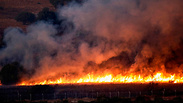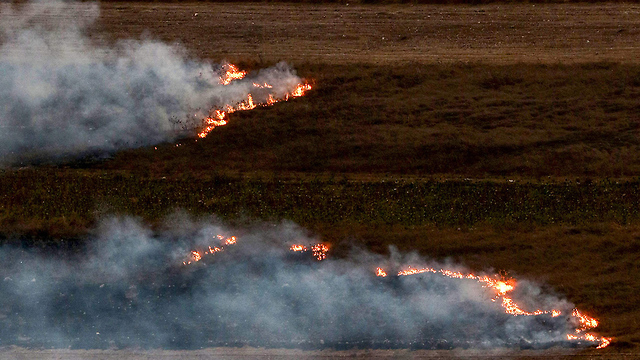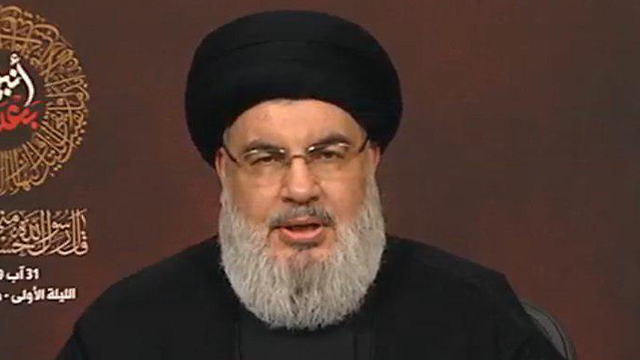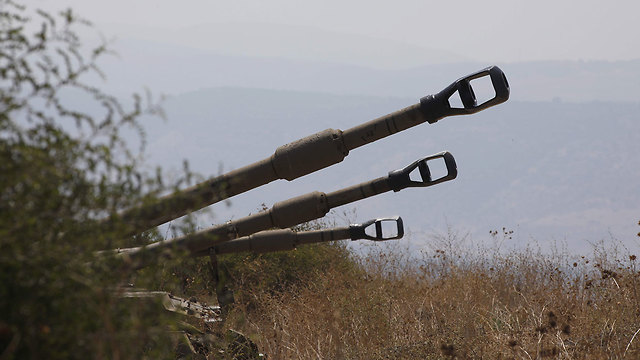
Hezbollah Secretary-General Hassan Nasrallah had one chance on Sunday and he failed miserably.
He had across-the-board support in Lebanon to carry out an attack on Israel, but this didn't deter the Jewish state from allegedly carrying out the recent assaults on Lebanon attributed to it.
Now Nasrallah no longer has the legitimacy to carry out another strike, neither from within Lebanon nor without.
On the contrary, a second attack would portray the Hezbollah leader as someone who compromises Lebanon's security and gives Israel legitimacy to intensify its strikes across the border.
Israel understands Nasrallah's dilemma – he didn't get to deliver the message of deterrence to Israel that he wanted, and that's why the IDF has not lowered its level of alert.
Now Israel is going to watch the arch-terrorist's every move. If he succeeds in convincing the Lebanese public that he managed to strike a damaging blow to the IDF, he will most likely get down from the tree into whose high branches he has climbed.
But if the incident turns into a political weapon against him within Lebanon – he could be pushed into a corner and make a mistake that would enflame and engulf the entire Israel-Lebanon border.
The Israeli leadership also has its own role to play here. The less they poke fun at Nasrallah's failure, the better the chances are that he swallows his pride and accepts the trick that the IDF Northern Command played on him. And what a trick it was.
Even a lookout without eyes could have seen that the Israeli troops on the border were moving in an unusual manner.
The same is true for the IDF post and ambulance parked nearby that were the targets of the missile fire by Hezbollah. Both were hit by deadly Kornets, but no one at all was harmed.
The staged evacuation of "wounded" IDF soldiers to a Haifa hospital by helicopter looks like another mind game, one designed to give the enemy a false sense of achievement.

So, there are two possible options: Either Hezbollah chose these targets deliberately, knowing that the IDF wouldn't suffer any casualties and the IDF played along, or the terror group simply didn't know it was being set up.
In both cases, the assessments made by the IDF Northern Command were correct: Had the IDF not acted in the way it did, Israel would most likely be dealing with a significant number of casualties and a border on fire today.
Last week's attack on shipping containers carrying precision-guided missiles in Beirut was a necessary one.
Whoever made the decision assumed that if the covert action was revealed, Hezbollah would have to respond in order to maintain its deterrence. For if there were no response, Israel's finger would grow looser on the trigger.
Indeed, Nasrallah hastily climbed up his high tree, placing his prestige on the line with the commitment to take revenge on Israel - and he failed.
And Israel, which vowed vengeance if Hezbollah harmed a single hair on a single soldier's head – didn't have to follow through on its pledge.
It's still too early to breathe a sigh of relief in Israel, for Hezbollah's failure was so great that it could end up making a far worse mistake.



















